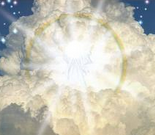the wicked or believers snatched away?
07-08-2012 - Posted by Andre Piet In a Dutch newspaper, het Nederlands Dagblad, of Thursday, May 9, (2011), prof. Matthew Dickerson, argued that especially believers should not expect to be “taken up” or to be “snatched away”. That article begins with…
In a Dutch newspaper, het Nederlands Dagblad, of Thursday, May 9, (2011), prof. Matthew Dickerson, argued that especially believers should not expect to be “taken up” or to be “snatched away”. That article begins with…
…When the end of the world is to occur, and Jesus comes back, His followers – as is often thought – will not be “taken up”. They will remain behind, on earth.
Dickerson basis this on Matthew 24:
37 “For even as the days of Noah, thus shall be the presence of the Son of Mankind. 38 For as they were in those days before the deluge, masticating and drinking and marrying and taking in marriage until the day on which Noah entered into the ark, 39 and did not know till the deluge came and TAKES them all AWAY, thus shall be the presence of the Son of Mankind. 40 Then two shall be in the field; one is taken along and one left: 41 two grinding at the millstone; one is taken along and one left.
the flood took them all away During the flood, the unbelievers were removed/taken away, while Noah and his family remained behind on earth. Therefore, thus so will it also be in the days of the Son of Man. Then there will be two in the field, one will be taken and the other one will be left behind. The translation “taken” suggests a positive fate, but that is an interpretation of the translators. The word “paralambano” is neutral: taking aside or taking along. In the context of the above passage, it is the idea that one will be taken, namely, by the judgment, while the other one will be left behind in peace. Therefore, no snatching away of believers (as is commonly assumed), but rather a snatching away of unbelievers! Thus far, I totally agree! This is how it is stated in Mat.24. blind spot However, it is disconcerting that Dickerson does not quote or reference the par excellence Scripture, which clearly speaks of the snatching away of believers (1Thes.4:15-17). He not even mentions it in his article! His reformed way of thinking about Scripture, evidently makes it impossible for him to distinguish different groups and times. Because Dickerson cannot place 1Thes.4, he simply ignores it. the scenario in Matthew 24 Concerning Matt.24, the following: According to the context, the taking away of the wicked will take place at the “end of the eon” (24:3; incorrectly translated in the common versions as “the end of the world”). After the great tribulation of Israel (24:15-21), the Son of Man will appear for “all the tribes of the land” (24:30) and the chosen people will be gathered from the four winds (24:31). This promised restoration of Israel is compared to the budding of the fig tree, by which it will be known that summer is near (24:32). That means that within one generation, everything will be done (24:34) and that the conclusion of the eon will dawn. Note: when the Son of Man will return and will restore Israel, it will take some time before “summer” will arrive. After gaining control over Israel, it will still take some time before the other nations will be made subject. The end of this period is marked by the taking away of the wicked from off the earth. two phases in the parousia Matthew 24 is about the last phase of the parousia of Christ. 1 Thessalonians 4, in contrast, deals with the first phase of the parousia. Paul’s words concern “the ecclesia, the body of Christ”. It will be snatched away to safety, prior to the day of the Lord for Israel. Then follows the great tribulation for Israel and the appearing of the Messiah on the Mount of Olives. Subsequently, the judgments will come upon the nations, culminating in the establishing of the Kingdom over all nations. Then it will be the “conclusion of the eon”, when the remaining wicked will be taken away from off the earth. the parousia a period It is very important to see that the return (better: the parousia) of Christ is not one moment of arrival, but includes a series of events in His presence. Parousia means literally “presence”‘ or “being present”. As the first coming of Christ includes the whole period, from his birth in Bethlehem to his ascension from the Mount of Olives, so will be His parousia, a period in which a complete scenario of historical events will be fulfilled. But yes, this is not readily grasped by those who have a totally different view of future events revealed in Scripture. ![]()

 English Blog
English Blog